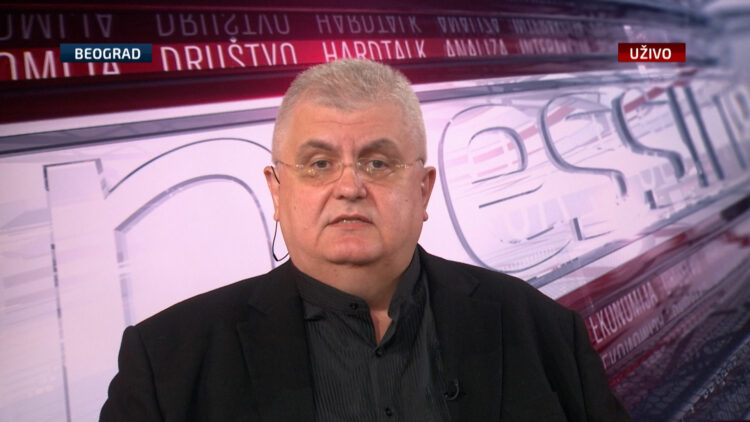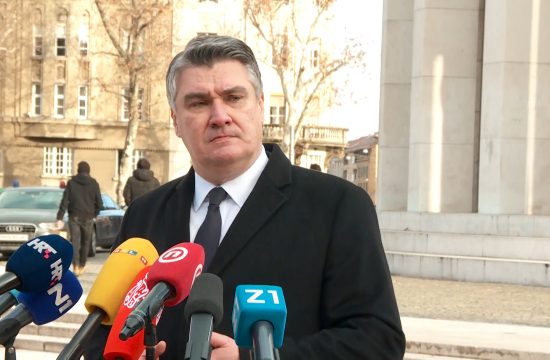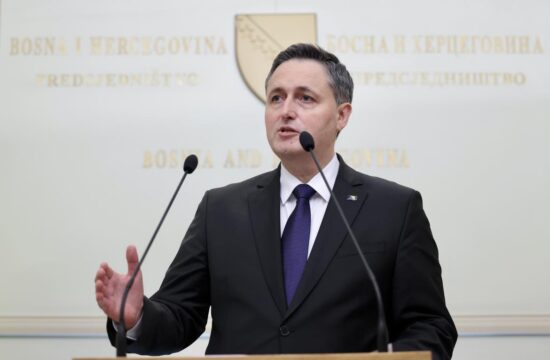
The solution of the Kosovo issue would be the solution of a decades-long issue which began in 1981, but this attempt failed as did all the following ones, and it would finally mean the unblocking of the process of Serbia's democratization, Nenad Canak, the leader of the League of Social-Democrats of Vojvodina told N1's Amir Zukic, adding that the solution will most likely be imposed and not reached via consensus between Belgrade and Pristina.
“The creation of borders between Serbia and Kosovo is pointless. Can't you see that this is a charade aimed at diverting the public's attention from economic facts showing that Albania and Bosnia are the lowest ranking economies in Europe and that Serbia is just behind,” Canak said adding that the whole process is a “kind of political pornography.”
Speaking about the often mentioned exchange of territory between Kosovo and Serbia, Canak categorically rejected the idea saying that “under no circumstances will there be any exchange of territory.”
“Serbia will never admit it recognized Kosovo, but everything else is open for discussion. After a solution gets imposed onto Belgrade and Pristina, the official Belgrade will cry for help, saying the solution is unjust, but that it had to be done,” Canak noted.
Speaking about Serbia's relations towards Bosnia and Bosnian Serb leader Milorad Dodik, Canak told N1's Amir Zukic that Serbia will most likely not change its position, following its parliamentary election. As for Dodik, the leader of the League of Social-Democrats said he is obviously Russian President Vladimir Putin's favourite because, through him, Putin can cause instability in the region.

Greater Serbia is a genocidal creation
Speaking about the defeat his party suffered on the recently held elections in Serbia, Canak said that, unlike the rest of opposition parties in Serbia who decided to boycott the elections, he could not, because he wanted to see whether his party and he could pass the public's test.
But when asked whether, in his opinion, Serbian President and his party won by deceit, he said: “Unfortunately, they did not.”
“If the term ‘opposition’ for you means not being on the same side as Aleksandar Vucic, then you're mistaken because ultra-rightists and those who think he is too lenient are also against him. There are also those with whom I don't want to be associated, such as Dveri, as well as all other fascists and rightists who continue to deny the Srebrenica genocide and who ridicule it, who continue to claim that [Bosnia's semi-autonomous entity of] Republika Srpska and Montenegro are Serbian lands which need to be annexed by all means. I don't want to fight against Aleksandar Vucic with them – no,” Canak stressed.
He also noted that not even the moderates distanced themselves from the right-wing parties in the opposition.
When asked why ‘genocide’ is the most expensive word in Serbia, Canak said that it is because the entire populist policy that reached its maturity during the reign of Slobodan Milosevic was based on a premise that “all Serbs are like potatoes – they are all the same whichever way you cut them.”
“It's this ominous homogeneity, this unity, that means that if you are a Serb you have one set of values how to govern yourself, how to think and when to vote and if you accuse anyone who is a Serb of genocide you will suddenly question the whole project because then you will realize that it is a genocidal project at its core. Greater Serbia is a genocidal project, and just when you say that, you are undermining the roots of that entire criminal association,” Canak noted.
In the end, when asked whether Serbia would support Republika Srpska's secession from Bosnia, Canak said it would mean the end for the entity as well as for Serbia.
“It would awaken the separatist tendencies in Serbia, as well as in the rest of Europe. It simply mustn't be done. I am 100 percent convinced that in case there are any concrete steps towards the Republika Srpska's secession – Serbia would not support it, because it would mean the end of the RS as well as Serbia,” Canak concluded.




